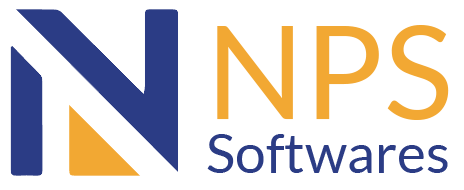Hire an ERP developer in India in 24 hours
Deciding on hiring an ERP developer stands for an important strategic solution for any company
which is considering implementing or extending the functionality of an Enterprise Resource
Planning system with custom features to meet the organization business and IT requirements.
A good ERP developer should be able to successfully combine technical skills, ability to solve
problems, and knowledge of the domain by not only creating but also maintaining the ERP
solutions. With competency in programming languages such as Java, Python, or C#, and also the
hands-on offline work in the ERP applications like SAP, Oracle, or Microsoft Dynamics, an ERP
developer helps to transform business needs into scalable, efficient, and good quality ERP
applications. Next to innovative technical expertise, an ERP developer should also possess
strong communication skills to coordinative with multidisciplinary teams, to collect
requirements from other stakeholders, and to continue with support and training. Whether it's
tailor-made the existing ERP modules, integrating 3rd-pary applications or creating bespoke ERP
solutions from the scratch, hiring the right ERP developer will play a role of a main key in the
digital transformation of business, optimizing business processes and innovation inside the
organization.
ERP developer is a vital decision for any organization, whether they are seeking to adopt or
customize a system that addresses its particular requirements. An ERP Developer who matters
it all is a unique combination of technical expertise, problem-solving skills and the domain
knowledge necessary for designing, developing and maintaining ERP solutions. As a confident
programmer in languages such as Java, Python, or C # and with hands-on experience in
enterprise resource planning platforms like SAP, Oracle, or Microsoft Dynamics, an ERP
developer performs many functions, some of which are converting business requirements into
scalable, efficient and user-friendly ERP applications. Being an ERP developer is not only about
the coding, but more about the identifying of the complex business processes that operate in
every department, finding out where and why the pain points are and conceiving solutions to
rectify them. Whether it is about bespoke customization of existing ERP modules based against
specific workflows, integration of third-party applications to enhance ERP functionality or the
creation of a separate ERP solutions from the Scratch, ERP developer stands at the center of
successful ERP implementations.
They work in close collaboration with the stakeholders like analysts, project managers, users of
the system and others, in the process which, they gather requirements and define the project
scope, to make sure the ERP system as a whole is in line with the organization’s objectives. On
top of that, an ERP developer shall undertake a number of post-implementation activities such
as troubleshooting errors, implementing software upgrades, and offering training to the end
users in order to achieve or even exceed the expected return on the ERP investments. The
ability to communicate effectively is a must-have for an ERP developer who is to explain the
technical terms to the concerned non-technical people and help manage the expectations and
ensure a collaborative working environment. For this purpose it is also critical for a developer
to keep an eye on the newly emerging technologies in ERP, trends in industry, and constantly
update the best practice guidelines for ERP development to improve the overall ERP capabilities
of the organization. Ultimately it is critical to hire the right person for this ERP role because
such a person will help in a digital transformation and will improve business processes and will
speed up innovation within the company thus providing a powerful competitive advantage to
the company.
Create a job description that is detailed with the terms and conditions clearly defined. This job
description should indicate the role, duties and qualifications of the selected candidate as well
as the expected performance. Make sure you provide details of your company, the ERP system
employed (or desired), and any specific techniques and programming languages that you need.
Employ job boards, networking sites, and niche forums to announce the vacancy. In addition,
you may take advantage of my contacts with professional IT or ERP recruiters.
As applications begin to roll in, review them thoroughly to see that you pick out the right
candidates who fit your criteria. Search for pertinent experience such as technical skills,
certifications and a record of achievements while being on ERP systems configuration.
Choose the best applicants and invite these for the interview process. Create a list of questions
to evaluate their technical talents, problem-solving skills, communication skills as well as the
compatibility of the person with your team.
Think about performing a technical survey or coding test aimed at finding out the candidate's
programming skills and ERP competencies. Through this process you can evaluate your
competitors’ grasp of important technologies and whether they can handle the complexities in
solving real-world problems.
Please reach out to the candidate's references to validate their employment history,
competencies, and qualifications before doing any final hiring decisions. This will not only give
you information about their old performance and trustworthiness but also can help you
forecast their future performance reliability.
When you've identified the right person, do not hesitate to extend to him/her a job offer which
should include information on salary, benefits, and other miscellaneous matters. You should be
ready to proceed to bargain if it is necessary for you to secure the candidate's concurrence.
After the acceptance of the offer, proceed to the on boarding procedure to enable the new
employee navigate the environment easily within the team. Conduct training on your ERP
system and any other tools or operations they are going to use? In conclusion, ensure to
continuously provide constructive feedback, support, and venues for professional growth so as
to enhance your ERP developer's performance and work collaboratively towards your
organization's success.

